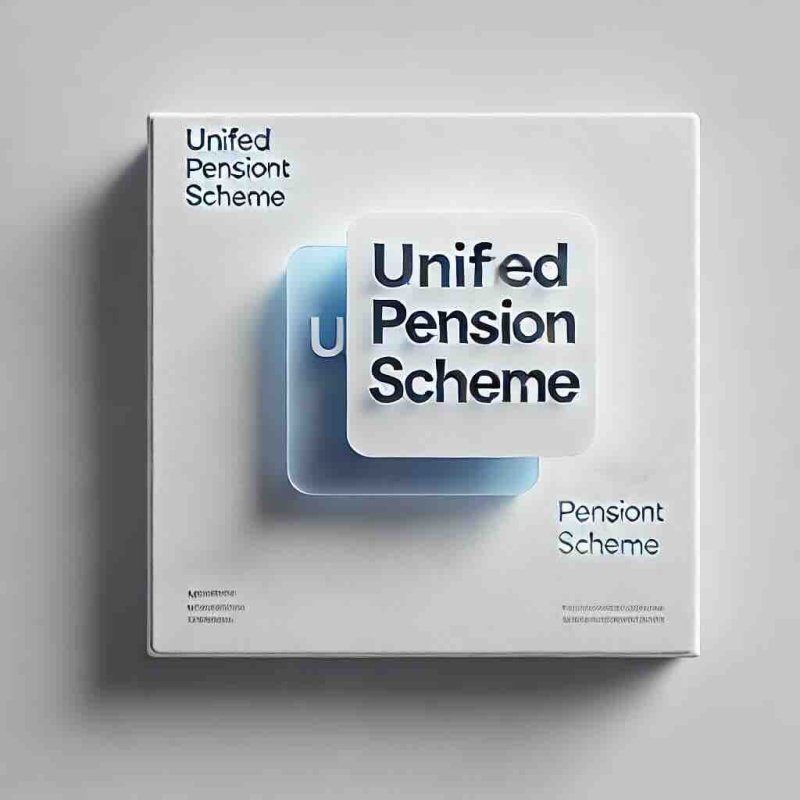Managing Pressure and Stress to Optimize Your Performance
Pressure Triggers in the Workplace
Some people say that they perform well under pressure. And it's true, sometimes pressure can be invigorating and energizing. If you manage the pressure well, then you can use it as a catalyst to maximize your performance. But poorly managed pressure can easily become stress, which affects people in many negative ways.So now, let's identify some of the situations that trigger workplace pressure, which can lead to negative stress.
- Time pressure is one of these triggers. This is usually a factor when you have tight deadlines or a really jam-packed schedule.
- Another trigger is work overload. Anyone who has a large workload will likely feel pressured. This type of pressure can be quantitative or qualitative.
- Relationship strain can also affect you. Whether it's dealing with a difficult colleague, or trying to please a co-worker, workplace relationships can be difficult to manage and can cause pressure. This pressure can be made even worse if a colleague is hostile, uncommunicative, or uncooperative.
- Another possible cause of stress is uncertainty, which is a type of anxiety-related stress. If something happens that puts you outside your comfort zone and stresses you out, it would fall into this category.
Here are some tips for you to manage stress
Stress affects different people in different ways. For some people, it can be the nudge that gets them over the line to complete a task. But for others, stress affects them very negatively. You can manage your stress, but only if you understand how it affects you. But to manage your stress properly, you need to consider what might make you more susceptible to stress, and consider the different ways stress might affect you.
The feelings of irritation, no sense of humor, frustration, and apathy are all red flags for the emotional effects of stress. For example, an accountant who feels annoyed about having to rush to meet a tight deadline.
Some of the cognitive symptoms of stress are mental slowness, confusion, constant worry, and difficulty concentrating. Think about an accountant who forgets a simple IFRS and needs to consult an online guide. This mental slowness may indicate that cognitive stress is affecting him.
To properly manage stress, you need to be able to identify the various manifestations of stress and determine whether they are physical, cognitive, emotional, or behavioral.
- The first step is to recognize that you are stressed. You can recognize stress by looking for physical and psychological symptoms.
- Manage your emotions: Begin by taking a step back from your emotions and calmly addressing the situation. Then ask yourself what's upsetting you and whether it is actually important or not. Once you've identified what's important, you can then focus on solving the problem.
- Changing Perceptions to Reduce Stress: When you are under pressure and stressed, a situation can seem worse than it is. You begin by trying to notice your automatic thoughts. These thoughts are unconscious and not in your best interests. They also have negative consequences, such as hypertension and hyperventilation, which make you more susceptible to negativity. You can learn to identify these distorted thoughts to help improve your performance under pressure.
- Revise your thoughts, and apply more constructive interpretations to them using more positive phrasing. For example, rather than saying "We'll never get this work done in time," say "There's a lot of work to do, but if we manage it correctly we can get it done".
Taking Action in High-pressure Situations :
When you're faced with a challenge, you need to make sure you're free from emotional hooks, and then clarify exactly what that the challenge is. Once you've identified the problem, there are four steps you can take to overcome it.- First, you need to question the challenge. The first key question to ask yourself is how urgent is it? This helps you establish your priorities. The second question is how much time do you have to address it? You need to make sure that you have enough time to resolve the problem. The final question is what additional information do you need to respond to it? This helps you develop a proper understanding of the issue before you take action.
- Identify your goal. In order to solve the problem, you need to have a proper understanding of it. When you have the answer to the question, "What do I need to achieve?" – you'll have identified the goal. This will allow you to identify acceptable solutions before taking action.
- Once you've identified the goal, you need to generate and evaluate possible solutions. So basically, you need to identify possible actions and the effects they might have. First step, you need to generate a number of different solutions. Then for each proposed solution, you need to identify any potential negative effects that may occur. You should discuss these negative effects with a colleague or mentor who might be able to identify any problems that you missed.
- Choose the best solution that addresses the challenge criteria. When you select a single solution from multiple options, it increases the value of the option you selected. This is because you identified what else you could've done, and developed a rationale about your decision.
- After evaluating possible solutions, you need to design a plan of action. The plan of action begins with you dividing the solution you chose into smaller and manageable tasks. By splitting the work, you can avoid excessive pressure and analysis paralysis. Once you're done breaking up the tasks, you need to assign a specific amount of time for completing each task. The first task should be a task that can be completed immediately so that you can build momentum and avoid procrastination.
- You need to make sure your perceptions aren't distorted by emotions so that you can clearly identify a problem. Once you've recognized what the problem is, you implement the four steps to overcome the challenge.
Overcoming Overanalysis and Overconfidence
Some people are motivated by pressure and can use it to drive their success. These people are better at avoiding or managing any negative tendencies that may be caused by pressure. However, the pressure from a situation can cause some people to struggle. The people who struggle under pressure usually do so because of overanalysis or overconfidence. Overanalysis, or overthinking is the first trap you could fall into. This happens when you're really feeling under pressure and you're just simply overwhelmed with the details and outcomes of the situation. Overthinking can be paralyzing, but there are several strategies you can use to avoid it.- One way is to stay focused. When you focus on what you're trying to achieve rather than getting lost in the details, you can stop yourself from overthinking. Because you're human, when faced with a pressure situation, you will usually focus on all the things you could do or should do. Instead, you should just do what you do.
- Another technique to avoid overthinking is to aim for progress, not perfection. If you focus on progress rather than perfection, you will be able to perform better under pressure.
- Setting a time limit on tasks can help you take action when you’re under pressure.
- A final strategy is to break the task down. When you split your work into smaller, more manageable tasks, you can avoid overanalysis.
- In order to avoid overconfidence, you need to stay humble and accountable. You need to know your limits so that you can make good decisions.
- Another technique you can use is to learn from your previous mistakes. By analyzing your mistakes, you can see where you went wrong so that you don't keep on making the same errors in the future.
- You should also be realistic about the time and effort required. If you don't allocate enough time to a task, you won't be able to complete it. The last method you can use is to think ahead. By thinking ahead, you can avoid problems caused by overconfidence.
Remember, if you struggle under pressure, it may be due to overanalysis or overconfidence, but there are steps you can take to avoid these issues.
Dealing with Stressed Colleagues
It's very challenging to deal with stressed people in the workplace. Your stressed-out colleagues may be panicking, distressed, or just impatient. Even if they are difficult to handle, there are a few guidelines you should try to follow when dealing with them.
- You should always show respect to the person you are interacting with. At the most basic level, this means being polite and courteous and listening attentively to what they have to say. You should also encourage others to express their opinions and ideas. If an idea is expressed that can improve processes or procedures, you should use it and give credit to the person who came up with the idea. While healthy debate and constructive criticism are important, you should also praise more frequently than you criticize. You should also avoid reacting negatively as this can reinforce stress-inducing behavior.
- To be able to deal with people who are stressed out, you need to learn to detect stress in others. Knowing your colleague's work styles is a good start. This will allow you to anticipate how they will react. By identifying your colleague's emotional state, you'll notice if they're stressed or not. Get your cues from listening to what they are saying and how they are saying it. Look out for any specific behaviors. These are behaviors you will pick up over time in the workplace. You should also think about your colleague's feelings.
- The third guideline is to avoid getting hooked by their stressed behavior. You can avoid getting hooked by reframing your thinking, and recognizing what is the cause of their stressed reaction. You should also be trying to empathize with the individual by imagining yourself in their situation. Finally, recognize that you are not the target of the person's reaction.
- The final tip is to avoid blocking automatic stress-reducing mechanisms. If you try to block it, the stressful reaction will take longer to resolve.
It's difficult to deal with stressed colleagues who may be trapped in their negative emotions. You should follow the established guidelines in order to manage their reactions.
From the blog
View allFAQs
Follow these links to help you prepare for the ACCA exams
Follow these blogs to stay updated on IFRS
Use these formats for day to day operations
- Account closure format
- Insurance claim letter format
- Transfer certification application format
- Resignation acceptance letter format
- School leaving certificate format
- Letter of experience insurance
- Insurance cancellation letter format
- format for Thank you email after an interview
- application for teaching job
- ACCA PER examples
- Leave application for office
- Marketing manager cover letter
- Nursing job cover letter
- Leave letter to class teacher
- leave letter in hindi for fever
- Leave letter for stomach pain
- Leave application in hindi
- Relieving letter format
Link for blogs for various interview questions with answers
- Strategic interview questions
- Accounts payable interview questions
- IFRS interview questions
- CA Articleship interview questions
- AML and KYC interview questions
- Accounts receivable interview questions
- GST interview questions
- ESG Interview questions
- IFRS 17 interview questions
- Concentric Advisors interview questions
- Questions to ask at the end of an interview
- Business Analyst interview questions
- Interview outfits for women
- Why should we hire you question
- Leave application for office
- Leave application for school
- Leave application for sick leave
- Leave application for marriage
- leave application for personal reasons
- Maternity leave application
- Leave application for sister marriage
- Casual leave application
- Leave application for 2 days
- Leave application for urgent work
- Application for sick leave to school
- One day leave application
- Half day leave application
- Leave application for fever
- Privilege leave
- Leave letter to school due to stomach pain
- How to write leave letter
- Sample letter of appeal for reconsideration of insurance claims
- How to increase insurance agent productivity
- UAE unemployment insurance
- Insurance cancellation letter
- Insurance claim letter format
- Insured closing letter formats
- ACORD cancellation form
- Provision for insurance claim
- Cricket insurance claim
- Insurance to protect lawsuits for business owners
- Certificate holder insurance
- does homeowners insurance cover mold
- sample letter asking for homeowner right to repair for insurance
- Does homeowners insurance cover roof leaks










Leave a comment